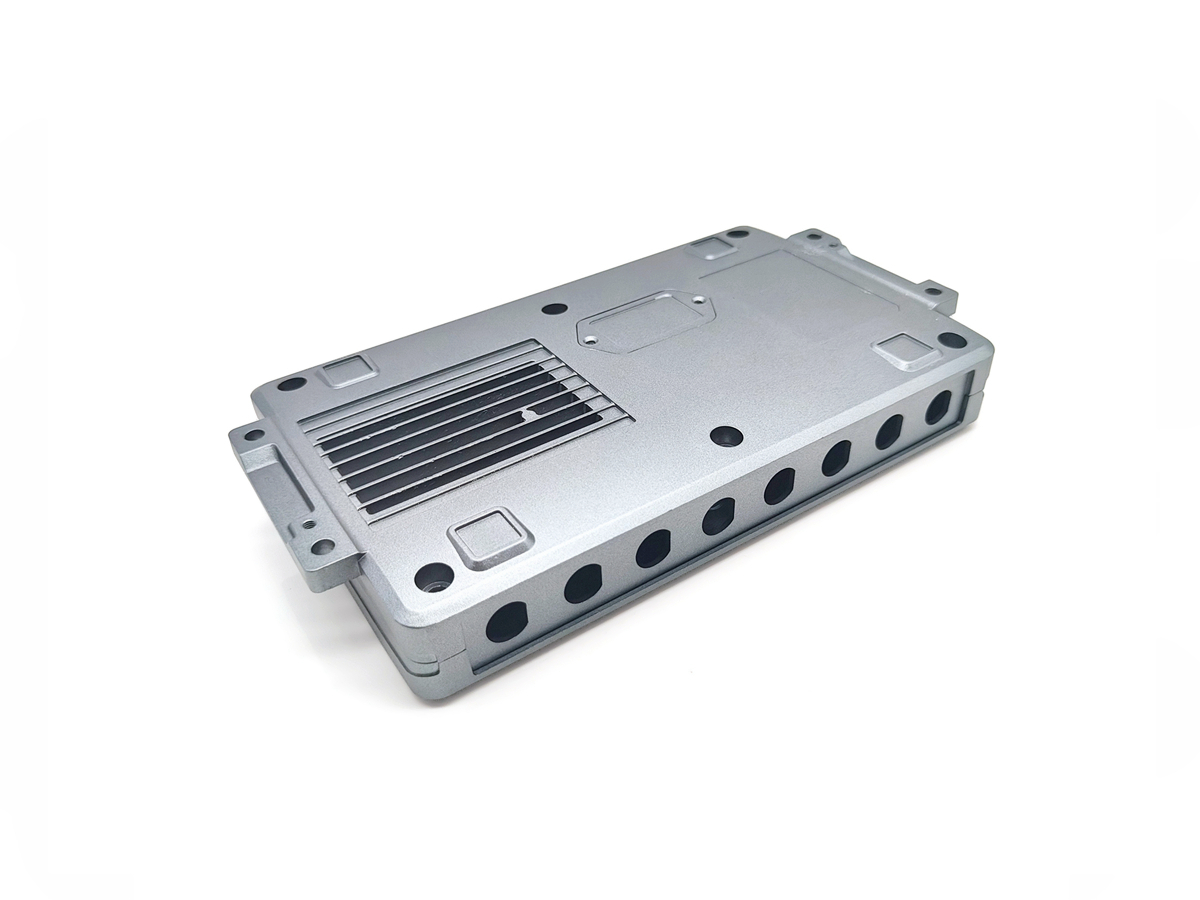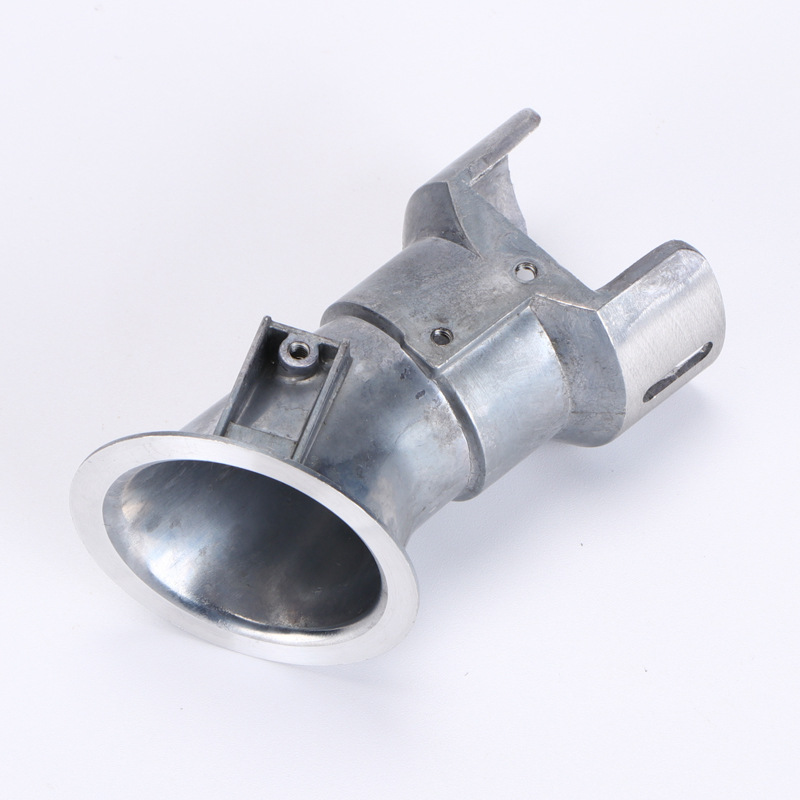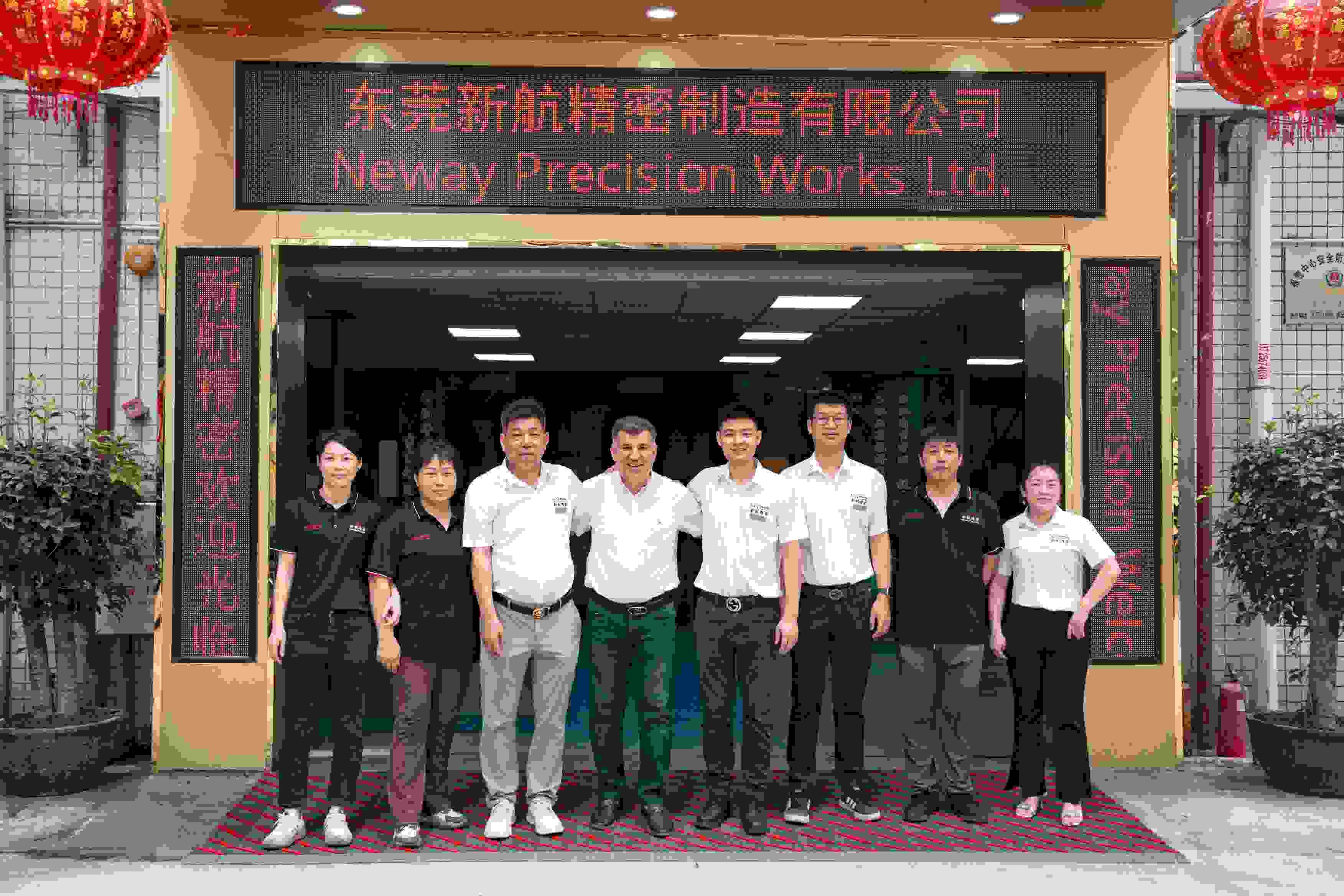AC7A
AC7A aluminum alloy is a high-performance casting material classified under JIS H5302, engineered for outstanding corrosion resistance, superior elongation, and excellent weldability. It is ideal for structural components exposed to marine environments, high-humidity conditions, and mechanical impact, particularly in transportation and infrastructure applications.
At Neway, our AC7A aluminum die casting services integrate advanced tool and die design, controlled solidification processes, and precision machining to meet high-reliability standards.
Key Characteristics of AC7A Aluminum Alloy
Property | Value (Typical, As-Cast) |
|---|---|
Density | 2.65 g/cm³ |
Ultimate Tensile Strength | 250 MPa (36,250 psi) |
Yield Strength | 110 MPa (15,950 psi) |
Elongation at Break | 10.0% |
Thermal Conductivity | ~140 W/m·K |
Coefficient of Thermal Expansion | 22 µm/m·°C |
Brinell Hardness | 60 HB |
Corrosion Resistance | Excellent (ISO 9227: >1000 hours NSS) |
Weldability | Excellent (TIG/MIG compatible) |
Its magnesium-rich composition enables excellent corrosion behavior, even in salt fog or coastal environments, while high ductility provides resilience under impact or load cycling.
Chemical Composition of AC7A
Element | Composition (wt%) |
|---|---|
Silicon (Si) | 6.5 – 8.0 |
Magnesium (Mg) | 0.4 – 0.8 |
Copper (Cu) | ≤ 0.10 |
Iron (Fe) | ≤ 0.25 |
Manganese (Mn) | ≤ 0.50 |
Zinc (Zn) | ≤ 0.15 |
Titanium (Ti) | ≤ 0.25 |
Others (Total) | ≤ 0.50 |
Aluminum (Al) | Balance |
The low copper and iron content reduces intergranular corrosion and facilitates anodizing and welding, while the Si-Mg balance ensures adequate fluidity and strength during casting.
Mechanical Properties of AC7A Aluminum Alloy
Tested under ambient conditions per JIS and ASTM B85, AC7A’s mechanical profile supports use in components requiring both formability and long-term environmental durability.
Property | Value (As-Cast) |
|---|---|
Ultimate Tensile Strength | 250 MPa (36,250 psi) |
Yield Strength (0.2% Offset) | 110 MPa (15,950 psi) |
Elongation at Break | 10.0% |
Fatigue Strength (10⁸ cycles) | 90 MPa (13,050 psi) |
Modulus of Elasticity | 68 GPa |
Impact Resistance | High (Unnotched Izod ≥ 6 J) |
AC7A’s ductility allows it to absorb shock energy and mechanical deformation without fracturing—suitable for safety-critical castings.
Benefits of Using AC7A in Die Casting
Marine-Grade Corrosion Resistance: Ideal for saltwater or high-humidity exposure per ISO 12944-6 standard.
Superior Ductility: Supports deformation without failure—suitable for load-transmitting cast structures.
High Weldability: Compatible with TIG and MIG welding using ER5356 filler, without risk of hot cracking.
Thermal Performance: Excellent for passive cooling components in electrical and optical systems.
Post-Processing Compatibility: Easily anodized or powder coated for enhanced protection and appearance.
Typical Applications of AC7A Die Cast Parts
AC7A is broadly used in harsh service environments where structural durability and corrosion resistance are non-negotiable:
Marine: Outboard motor brackets, hull fittings, instrumentation enclosures
Automotive: Crash-energy absorbers, engine mounting brackets, underbody systems
Telecommunications: Outdoor antennas, junction boxes, heat-dissipating enclosures
Infrastructure: Roadside device casings, barrier lighting housings
Defense & Aerospace: Coastal radome supports, deployable shelters, structure interfaces
The alloy's ability to balance thermal, mechanical, and chemical resistance makes it a robust solution for multi-functional castings.
CNC Machining Considerations for AC7A
AC7A is classified as a “machinable cast aluminum alloy” under ISO 2768, especially when cast with optimized mold filling and solidification control.
Recommended Machining Parameters:
Tool Material: Carbide (uncoated or AlTiN-coated); PCD for large volume finishing
Cutting Speed: 200–450 m/min depending on tool diameter
Feed Rate: 0.05–0.20 mm/rev
Coolant: Emulsified cutting fluids are recommended for heat dissipation
Surface Finish: Ra ≤ 1.6 µm possible for sealing or cosmetic surfaces
Tolerance Capability: ±0.05 mm standard; ±0.02 mm on critical features with precision setup
Neway’s CNC machining operations ensure full dimensional conformity with in-line CMM inspection and SPC control.
Surface Treatments for AC7A Parts
AC7A’s metallurgy allows for a broad range of functional and decorative finishing processes:
Anodizing: AC7A is compatible with Type II and Type III anodizing for UV and abrasion resistance
Powder Coating: Excellent adhesion with minimal surface prep; suitable for RAL custom colors
Painting: Electrostatic and wet-spray processes supported
Tumbling: Applied for part deburring and surface uniformity before coating or assembly
All coatings are validated using ISO 2409 (cross-cut adhesion), ASTM B117 (salt spray), and thickness measurement via ISO 2360.
Why Choose Neway for AC7A Die Casting?
Neway offers complete die casting solutions for AC7A alloy, from design for manufacturability and tooling development to mass production with ISO 9001 and IATF 16949 quality compliance. Our systems are tailored to ensure low-porosity, corrosion-resistant components with consistent geometry and finish.
FAQs:
What makes AC7A suitable for marine and outdoor environments?
Can AC7A die cast parts be welded or repaired without cracking?
How does AC7A compare to AC4C in corrosion resistance?
Is AC7A compatible with anodizing and powder coating?
What are common industrial applications of AC7A aluminum alloy?


